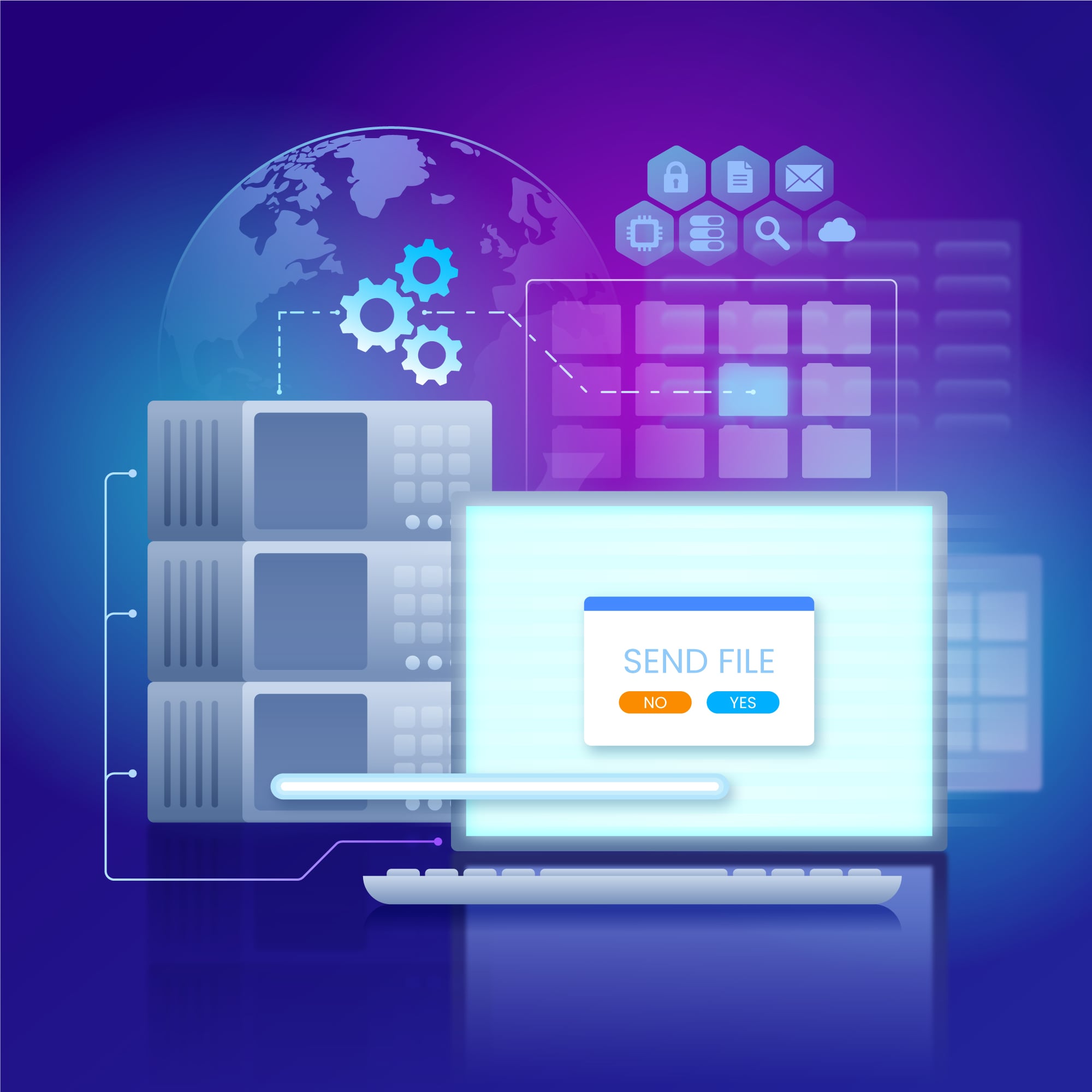Azure Kubernetes Service provides software teams with an easy way to deploy and manage containers, providing features such as patching, auto-scaling, self-healing and essential cluster monitoring.
Containerization helps businesses modernize existing applications by adding scalability, security, and DevOps automation - and can support multi-cloud and hybrid deployment scenarios.
Ease of use
Azure Kubernetes Service (AKS) provides businesses with an easy, managed solution for deploying and managing cloud-native applications. AKS features many valuable features and is accessible from multiple regions - making it an excellent way to streamline container orchestration workflows while offering competitive advantages over alternative cloud-native solutions.
Kubernetes is a unique container orchestration system, but it can be daunting to manage independently. AKS automates key tasks to simplify container deployment and scaling for developers and supports agile development practices like Continuous Integration/Continuous Deployment, /Continuous Monitoring. Furthermore, AKS features several security features that prevent unauthorized access and comply with industry-specific regulations.

Microsoft AKS provides:
- Fully managed Kubernetes clusters.
- Eliminating the hassles and concerns associated with deployment.
- Scaling or upgrading them yourself.
This frees developers to focus on building and deploying applications instead of dealing with infrastructure concerns. Furthermore, AKS features high availability by deploying nodes across various availability zones, ensuring your apps will always run regardless of failures in infrastructure.
AKS has integrated features to facilitate application deployment and management, such as Helm, Azure Container Registry (ACR) and Azure Monitor. ACR stores Docker images which can then be deployed into Kubernetes clusters. At the same time, Azure Monitor collects logs from AKS controllers, nodes, and containers and their logs can help monitor applications, configure alerts or diagnose performance issues more efficiently.
AKS provides additional features to increase developer productivity and simplify deployments, such as automated management, scalability, and integration with Azure services such as Active Directory (AD) and CI/CD tools. Furthermore, AKS is a cost-effective way of hosting Kubernetes as you only pay for what resources are being consumed; multi-cloud and hybrid environments support making moving applications between environments easy, as well as advanced security features providing visibility and control of clusters and applications.
Scalability
Azure Kubernetes Service marries Azure's scalability with the open-source container orchestration platform Kubernetes to form a fully managed cluster that provides infrastructure, deployment, and management capabilities necessary for cloud-native apps. Built-in features such as autoscaling and self-healing help minimize time spent managing collections so organizations can focus on creating applications quickly.
AKS provides a comprehensive set of foundational Kubernetes services, such as Kubelet and Kube-proxy, to facilitate communication between workloads and cloud infrastructure. Utilizing virtualized worker nodes for workload execution and pod deployment as replica sets or pods, AKS supports numerous storage options and network connections, making it an ideal fit for enterprise apps.
Scalability in AKS is achieved via automatic scaling, which dynamically adapts cloud resources to match workload demands in real time and thus eliminates waste while optimizing the performance of your application. AKS also features different scalability mechanisms - cluster and horizontal pod auto scalers allow you to increase or decrease the workload on each node and is, therefore, one of its key selling points for enterprises and businesses that need flexible, cost-effective and secure environments for containerized apps.
This platform makes scaling Kubernetes clusters up and down without manual intervention simple, saving both time and effort in its management. Furthermore, it simplifies complex operations such as infrastructure upgrades and patching while eliminating manual configuration - enabling developers to focus on building applications faster while speeding DevOps pipelines that will allow rapid build, test, and deployment cycles.
Azure Kubernetes Service also features integrated security, which protects applications from external threats while restricting access based on individual identities. This feature is particularly beneficial in hybrid environments requiring secure networking isolation between on-premises and multi-cloud ones. Also, AKS works seamlessly with developer productivity tools like VSCode to make application development and management a snap!
AKS provides scalability for large applications with numerous devices, like Internet of Things (IoT) sensors. Furthermore, this service offers compute resources necessary for big data analytics and machine learning. Furthermore, AKS' monitoring features help administrators quickly identify performance issues or troubleshoot problems within their systems.
Security
AKS integrates Kubernetes with Microsoft Azure security features such as advanced networking, monitoring and integration with Azure Active Directory. Furthermore, AKS allows for hybrid and multi-cloud deployments and the deployment of scalable Kubernetes clusters without incurring upfront infrastructure costs; its security features include role-based access control, micro-segmentation, and encryption at rest and in transit.
Kubernetes API server utilizes a private IP address only accessible by its cluster, ensuring only authorized users can access sensitive data. You can log and audit API calls made over this connection; AKS includes an AKSctl tool to help with cluster management that simplifies complex command line tasks.
AKS ensures that only select users can access its API server and secures communication between a Kubernetes pod and other resources within its cluster. AKS can limit contact based on pod or deployment identity or deployment type and enforce rules for network traffic, such as restricting access to specific ports.
Readiness probes are another critical security feature, helping detect when an application isn't ready to serve traffic and thus thwarting potential attacks from exploiting insecure code. Furthermore, Azure Network Security Groups (NSGs) allow you to restrict ingress/egress traffic between clusters.
AKS provides GPU-enabled node pools as an efficient defence-in-depth strategy, protecting against malicious code by only executing containers verified by their operating systems. This provides a multilayered defence mechanism against attacks.
AKS offers advanced logging capabilities that enable you to quickly identify performance hotspots and anomalies, including suspicious API requests, allowing you to monitor your workloads status and detect threats in real-time. Furthermore, CrowdStrike Falcon(r), its enterprise-grade SaaS logging platform, supports unlimited log volumes from AKS and other sources - plus offers powerful queries and dashboards.
Integrations
Kubernetes makes containerized applications simpler to deploy and scale, but integrating them into your environment requires advanced skills. Azure Kubernetes Service removes this hurdle with its fully managed open-source container orchestration solution built upon Azure Cloud Platform with multiple integration points, making application development and management more straightforward than ever in a centralized location.
Kubernetes provides many features to enable it to work at scale, such as autoscaling and self-healing. AKS automates these operational tasks to reduce burdens on software teams while assuring maximum uptime for applications.
Kubernetes clusters feature an API server, which controls access and authorization of resources within them. To communicate with this server, pods need an authentication token from their service account bound with roles within Kubernetes configuration - in other words, to authenticate themselves to it.
If your administrators or developers require more traditional access, an identity solution integrated with Kubernetes may provide more traditional user accounts and passwords for regular user accounts and passwords. AKS clusters can be configured with solutions such as Azure Active Directory (Azure AD), which enables you to map cluster roles to existing Azure AD users or groups.
Kubernetes also supports various methods for managing microservice communication. You can utilize a Kubernetes service mesh, providing traffic management, resiliency, policy, security, strong identity management and observability capabilities between services. AKS offers the App Gateway Ingress Controller (AGIC) as an integrated solution that simplifies this deployment and scaling process and scales up quickly as required in your cluster environment.
